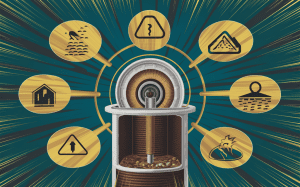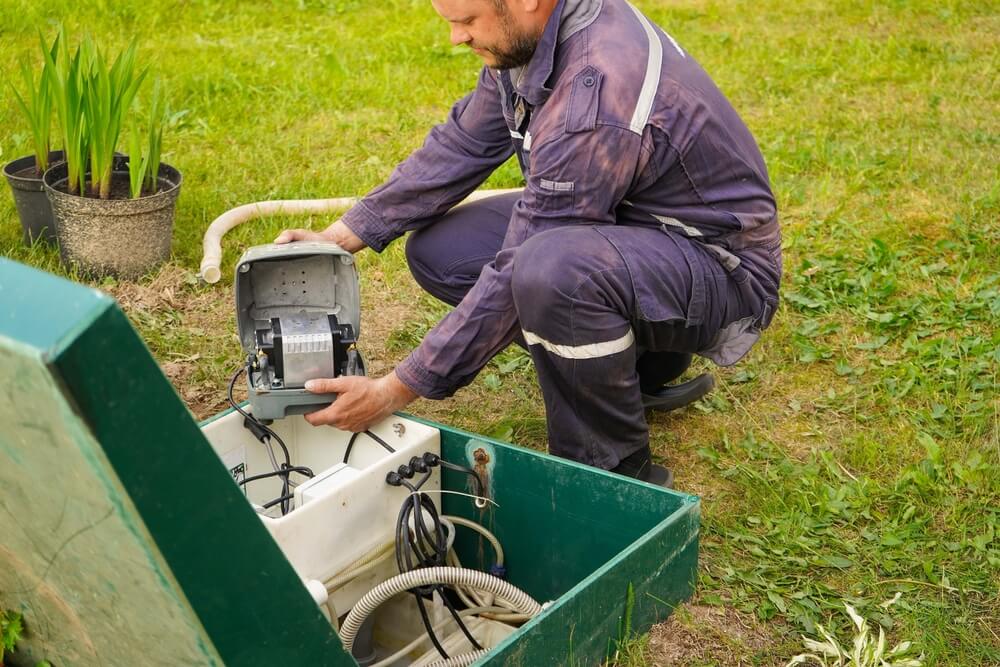Signs Your Septic System Needs Help: Key Indicators to Watch For
Your septic system plays a vital role in managing wastewater and keeping your home’s plumbing functioning smoothly. When your system isn’t operating properly, it can lead to serious issues like backups, unpleasant odors, and costly repairs. Recognizing the signs that your septic system needs attention is essential to prevent bigger problems down the line. In this article, we’ll explore the common indicators that your septic system may need professional help.
Why Regular Septic System Maintenance Is Important
How a Septic System Works
A septic system is designed to treat and filter wastewater from your home. It typically includes a septic tank, which holds and separates solids, and a drain field where the treated liquid waste is filtered and absorbed into the soil. A well-maintained system efficiently handles wastewater, ensuring that harmful bacteria and contaminants are removed before the water is released into the environment.
However, when problems arise, the system may no longer function effectively, causing waste to back up into your home or contaminate the surrounding soil and groundwater.
The Importance of Regular Maintenance
Septic systems require regular maintenance to operate efficiently. Neglecting this maintenance can lead to costly repairs and potential health risks. Regular pumping, inspections, and monitoring of the system can help you catch issues early before they become serious problems.
Common Signs That Your Septic System Needs Help
1. Slow Drains and Gurgling Noises
One of the first indicators that something may be wrong with your septic system is slow drains. If water in your sinks, bathtubs, or toilets is draining slower than usual, it’s a sign that the system is not processing waste effectively. This could be due to a clogged pipe, a full septic tank, or an issue with the drain field.
Additionally, you may hear gurgling sounds coming from your drains. This noise occurs when air is trapped in the pipes, usually due to a blockage or backup in the system. If you experience slow drains or gurgling sounds, it’s time to inspect your septic system to identify the underlying problem.

2. Foul Odors Inside and Around Your Home
A strong, unpleasant odor around your drains or septic tank area is a clear sign that your septic system needs attention. When the tank is full or there is a clog, waste can back up into the system, causing a build-up of gases that are released through the pipes. The smell of sewage is not only unpleasant but also potentially harmful, as it can indicate that the system is not functioning properly.
If you notice a persistent foul odor around your drains, toilet, or in the vicinity of your septic tank or drain field, you should call a professional to inspect the system immediately.
3. Pooling Water or Wet Spots Near the Drain Field
Your septic system includes a drain field that is designed to filter and absorb liquid waste into the soil. If the drain field becomes overloaded, damaged, or clogged, wastewater may not be able to properly filter through the soil. This can result in pooling water or wet spots on the ground near your septic tank or drain field.
These wet areas may also emit a strong odor and could be a sign that the system is not processing wastewater properly. Standing water or soggy soil near your septic system should be addressed as soon as possible to prevent further damage and potential contamination of the environment.
4. Backed-Up Toilets and Drains
One of the most alarming signs that your septic system needs immediate attention is when sewage starts backing up into your home. If you notice that your toilets or drains are backing up with wastewater, it could indicate a serious problem with your septic system.
This type of backup is often caused by a clog or obstruction in the pipes or septic tank. It can also result from an overfull septic tank or damage to the drain field. Either way, a septic backup is a major issue that requires professional intervention as soon as possible to prevent flooding and contamination.
5. Unusually Lush Vegetation Over the Drain Field
If you notice that the vegetation around your drain field is growing unusually fast or appearing much greener than the surrounding area, it could be a sign of a septic system problem. While healthy grass is typical around a septic tank, excessively lush vegetation can indicate that the drain field is not filtering wastewater correctly.
The excess nutrients from untreated wastewater may be reaching the surface, encouraging rapid plant growth. This is often a sign of a system that is malfunctioning and could lead to future problems if left untreated.
6. Frequent Toilet or Plumbing Issues
If you’ve noticed that your toilets and plumbing fixtures are frequently having issues, such as clogging, backing up, or needing to be plunged regularly, it could indicate that your septic system is underperforming. While occasional clogging may happen, frequent or recurring issues point to a potential problem with your septic tank or drain field.
A septic system that’s overwhelmed or malfunctioning can cause waste to build up in the pipes, leading to repeated clogs and other plumbing issues. Addressing these issues early can prevent more significant problems later.
7. Changes in Water Flow or Pressure
Another subtle but important sign that your septic system needs attention is a change in water pressure or flow throughout your home. If you experience weak water pressure or notice that the water is not flowing as smoothly as it should, it may be a symptom of a septic backup or issue with the plumbing system.
This change in water flow can also occur if there is an obstruction in the pipes leading to or from the septic tank. If water is not able to flow freely, it can cause a buildup of waste and pressure within the system, leading to potential backups.
What to Do If You Notice These Signs
Call a Professional Septic Service
If you experience any of the signs mentioned above, it’s essential to contact a professional septic service right away. A licensed septic technician can inspect your system, identify any underlying issues, and recommend the appropriate course of action.
Attempting to fix septic problems on your own can make the situation worse and may cause further damage to the system. Professionals have the necessary tools and expertise to diagnose and repair septic issues safely and efficiently.
Schedule Regular Inspections and Maintenance
Even if you’re not currently experiencing issues, it’s important to schedule regular inspections and maintenance for your septic system. Regular pumping, cleaning, and maintenance can help extend the life of your system and prevent small issues from escalating into major problems.
By staying on top of your septic system’s maintenance needs, you can avoid unexpected failures and costly repairs.
Conclusion
A well-functioning septic system is crucial for maintaining the health and safety of your home. Recognizing the signs that your system needs help—such as slow drains, foul odors, and pooling water—can help you take action before the situation worsens. Regular maintenance, early intervention, and professional assistance are key to keeping your septic system in good working order and avoiding costly repairs. If you notice any of the signs mentioned in this article, don’t hesitate to call a professional to assess and address the issue promptly. Reach out to us here.

